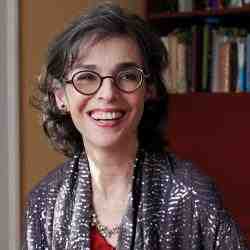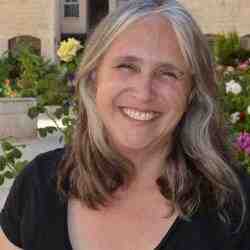Introduction
During adolescence, the risk of abuse that young people face often shifts from a familial context to public/school/peer environments. Currently, child protection systems are better equipped to address cases of abuse and violence within the home and family context. Carlene is pursuing a radical transformation in how policymakers, institutions, practitioners and the general public think about child protection by introducing a model of ‘Contextual Safeguarding’ which diversifies the focus of assessment and intervention from solely targeting the affected individual by abuse and seeks to address the conditions in which the abuse occurred.
The New Idea
Carlene has developed a new approach to assess and address drivers impacting the extent to which young people are understood and treated in the social care system. Her systemic approach, termed ‘Contextual Safeguarding’, has been developed to address the conditions of abuse rather than solely focused on the individuals affected by it. Current child protection systems (i.e. safeguarding systems) provide individualised intervention and support to the child at risk. This often results in the relocation of the child away from contexts in which they have been abused, because safeguarding systems primarily respond to risks within families and do not effect change in peer groups, school or neighbourhoods. However, Carlene recognises that during adolescence risk of abuse often shifts from familial environments to public/school/peer environments and peer influences and therefore systems need to do the same.
Carlene aims to extend the legal child protection framework outside the familial setting and build partnerships between child protection services and services that affect youth outside families including transport providers, schools and retail managers to operationalise this model. More importantly, she is measuring outcomes by a change in the social spaces where young people have experience abuse rather than changes in the behaviours displayed by any one individual who may have been abused.
Carlene sees opportunity in such a framework by equipping any member of the public to refer a location or a peer group at risk to trigger a multi-agency response system that focuses on the context. Her work aims to shift the lens from a silo-based understanding of the vulnerability points in a young person’s life to a contextual one. Her model is transforming how partner networks work together and ultimately intervene against and prevent the abuse of young people at different stages. Her framework addresses the risks that exist for young people beyond the family structure, to those posed through the wider context of a young person’s life - peer groups, social media, neighbourhoods and schools. This results in new partnerships with organisations like transport providers, local businesses, fast food restaurants and other places where young people gather - moving children away from unsafe social environments to safe spaces in the communities in which they spend their time.
She measures changes in the social spaces where young people have experienced abuse, broadening the historical methodology which simply captures behavioural change individually. Carlene is piloting this framework in the Hackney Council and has launched a network of over 1,500 practitioners from over 100 local authority areas across the UK. As a result of her work, she has already successfully changed statutory guidelines for multiagency safeguarding practice in England Working Together and ensured that contextual safeguarding features within regulatory inspection frameworks for OFSTED (the government regulatory and inspection body for Education and Children's Services).
She intends to scale this framework to new local and international geographies and non-statutory services such as schools and youth services. Alongside this work, she continues to build the evidence to show its effectiveness, launching a public awareness campaign, practice resources and legislative briefings for operationalising this framework.
The Problem
Child protection systems (i.e. safeguarding systems) in the UK are ill-equipped to safeguard adolescents, leaving young people vulnerable to peer-to-peer violence and abuse. During adolescence, young people experience increased risks of violence and abuse within peer, school, community and online contexts. For example, up to 50% of young women, when surveyed, have reported experiencing sexual harassment and violence at school. National crime surveys estimate that young people between the ages of 10 - 15 experience 465,000 incidents of violent crime in public spaces over 12 months. Moreover, the sexual exploitation of young people primarily occurs in community spaces - with shopping centres, takeaway food outlets and transport hubs - all used as places to meet and groom young people.
To date, this has been addressed through child and family interventions and/or by the relocation of young people and sometimes whole families away from areas where they have experienced extra-familial abuse. Meaning young people are often displaced from safe homes and separated from their families, resulting in further psychological trauma, rather than addressing the context in which the harm occurred. In the absence of appropriate systems, professionals, policymakers and wider societal norms operate in ways that hold parents accountable for extra-familial risks that are beyond their control. In addition, public narratives about who is to 'blame' for young people's experiences of violence and abuse are often focused on the young person, individualised, often focusing on the victims rather than the perpetrators (e.g. victims of abuse have to leave their homes, not the perpetrators).
The Strategy
Carlene worked with parents, community organisations, legal representatives, and international policymakers to transform the way children and family services deliver and think about child protection. At the first level of her strategy, Carlene supports local practitioners to implement the Contextual Safeguarding framework. She works with local councils and practitioners to implement Contextual Safeguarding, which is currently being piloted through a reform of children's services in Hackney (funded by the Department for Education).
Carlene also provides policy advice on safeguarding to national decision-makers, delivers training and speaking engagements to a range of stakeholders, and develops funding bids for the project's development. Moreover, she engages private business and community organisations to increase their awareness and encourage them to design and deliver solutions to reduce young people's exposure to violence and abuse external to the familial setting.
For example, she is targeting the Premier League and their associated youth football clubs across England, who work directly with tens of thousands of young people a year, as a key partner in implementing this across their clubs. As a keynote speaker at their annual safeguarding conference, Carlene and her team are now working directly with leads for safeguarding in the Premier League to design methods for auditing their approaches and developing peer-abuse policies - an aspect of the Premier League’s safeguarding that hasn’t been implemented before.
At the second level, Carlene develops a network to expand local adoption of the framework and build its evidence base so that it gains legitimacy in practice. She has established a network of over 1,500 practitioners from over 100 local authority areas, which are linked via a virtual hub to share their experience of implementing Contextual Safeguarding practices. The hub also serves as a resource for practitioners while also gathering and disseminating research. For example, the hub collects and furthers the evidence on interventions to reduce risks in schools, peer groups and public settings (such as bystander interventions, the development of community guardians and peer group intervention).
Furthermore, Carlene launched and published a study titled ‘Beyond Referral’ focused on understanding the levers for addressing harmful sexual behaviours in schools. This study has gone on to inform national statutory safeguarding guidance for educational establishments and those who regulate them. The Contextual Safeguarding Framework is being adopted across the entire Borough of Hackney reaching a population of a quarter million. She is now being replicated in 3 cities across England and Wales.
Lastly, Carlene works to influence policy and legislation. She strategically identifies policy partners and decision makers in order to establish a foundation where Contextual Safeguarding can be introduced and implemented across siloed institutional systems (e.g. education, transport, parks and recreation, etc.). They connect each of these formerly siloed ministries to work together directly. She is working alongside them to gradually build a legislative framework that supports full implementation of Contextual Safeguarding in England and Wales. At a Pan-London level, this was achieved by bringing together several partners in London over two years to form a London Safeguarding Adolescents y Steering Group to write a new practice guidance chapter for the London child protection procedures.
Carlene also aims to be continuously engaged with multiple policy frameworks and organisations to assure that she is able to influence their decision making. She sits on the Transport for London Safeguarding Board, is a member of the Home Office Violence Against Women and Girls Stakeholder Group, and a trustee of the National Organisation for Treatment of Sexual Abusers.
Her long-term goals aim to continue tracking and reviewing child protection policy, legislation and procedures, undertaking public attitude surveys, media headlines and political debates, and continuing to build the evidence base for funded services/interventions intended to address young people's experiences of violence and abuse.
Looking forward, Carlene is focused on continually developing the network for more practitioners to use the tools and research they have developed (e.g. self-auditing tool for Contextual Safeguarding). She is now scaling the work in Hackney into three other local authorities in England and Wales over the next 3 years. She has also secured funding to implement the Contextual Safeguarding resources for schools, developed over the past two years, to reduce risks of sexual violence within education settings. Their current focus is on England and Wales but they have begun exploring the application of Contextual Safeguarding in the other UK nations and Australia. For example, Carlene is in contact with the International Centre for Missing and Trafficked Children based in the US, who are also keen to apply and use Contextual Safeguarding where they can and have already been building it into some of their training modules.
Carlene’s work is already reaching thousands of young people who are both experiencing direct contextual interventions. At present, the Contextual Safeguarding network features over 1,500 members from children's services and other statutory and universal organisations including police, health, education and youth work. Carlene anticipates in England and Wales the intended reform will take 5-10 years with the aim of expanding the framework outside of the UK beforehand.
The Person
Carlene was born and raised in London, the oldest of four siblings. After completing her studies, Carlene went to work as a policy officer at Race on the Agenda. It was here where she first gained experience in policy formation. She contributed to numerous consultations, including the government's Violence Against Women Strategy, the London Youth Crime Prevention Board Strategy, and the home affairs select committee into knife crime. During this time Carlene founded the Girls Against Gangs project, a youth-led group which advised decision-makers on the impact of youth violence and gang culture and ensured that women's and girls’ interests were represented by local and national services. During this time Carlene successfully influenced London’s policy on gang violence. While women and girls’ involvement in gangs had started to make the headlines, policymakers had failed to provide specific girl-targeted services focused on addressing the specific experiences and victimisation of young women. Carlene was awarded an MBE for services to girls’ and women’s issues.
Carlene had found a clear gap in research, policy and practice between the needs of young people and existing safeguarding systems. To further explore this she went on to pursue a PhD at the University of Bedfordshire to support this work, by reviewing rape and murder files featuring 145 young people, 160 families, 21 peer groups, 30 schools and 9 neighbourhoods – assessing the extent to which the contextual risks in each case were addressed.
In 2013 she founded the MsUnderstood Partnership, a joint project between the Girls in Gangs project, Imkaan, a black women’s organisation dedicated to addressing violence against women and girls, and the University of Bedfordshire. The project aimed at supporting and working with young women experiencing inequality and would later be the basis for the methodology, vision and practice of The Contextual Safeguarding Network.
After working with hundreds of practitioners, young people and decision-makers across the UK to inform the development of discrete services, Carlene realised that she was never going to create lasting systemic impact without looking to influence and change the root cause of the problem: a safeguarding system that was ill-equipped to recognise and respond to the vulnerabilities of young people. To do so she knew she needed to develop a framework that would cut across the siloed services to reflect the actual experiences of needs for youth. She also knew she needed the framework to be accessible and understandable to policymakers and practitioners alike. To tackle the complexity of the problem at multiple levels, she founded the Contextual Safeguarding Network in 2016.




